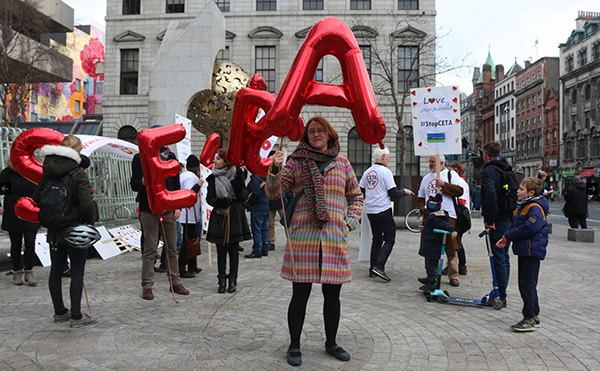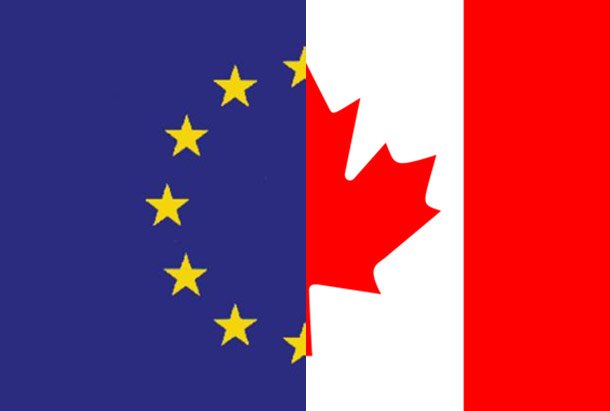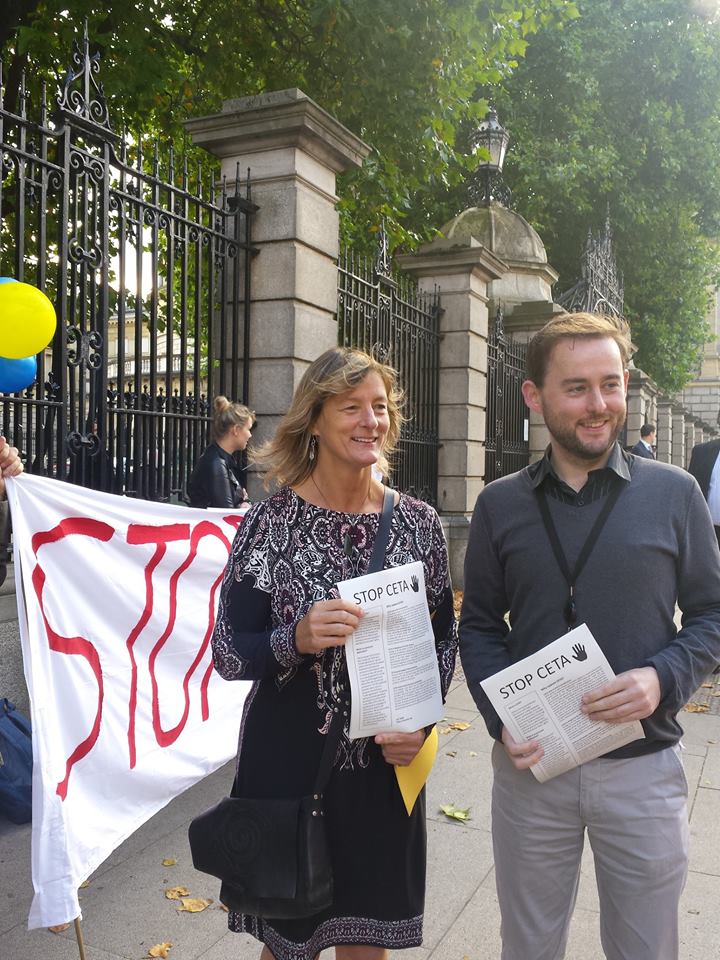Senator Alice-Mary Higgins on CETA

CETA has been consistently in the news ever since campaigners called to postpone voting on its investors’ protection element back in December 2020.
But we wanted to dig deeper on the issue – so a while back we chatted to Independent Senator Alice-Mary Higgins to help us do just that.
If you want to get up to scratch on the issue first before delving in here, have a read of this first.
We’ve heard a lot of discourse around that there’s no rush to ratify this – can you expand on that a little bit?
So in 2016, CETA was just one big block of an agreement. You just agreed to the whole thing, or not at all.
But in 2017 there was a European Court of Justice (ECJ) ruling on a free trade agreement with Singapore which said that trades and tariffs was an EU competence, which meant that it could be signed off at an EU level.
But the ruling went on to say that as there is a national liability attached to investor protection mechanisms, so any decision on that front had to be agreed to on a national level.
Another decision followed this ruling which said CETA would be a mixed agreement and by 2017, all the trade aspects went ahead.
What remains is the piece around investor courts, which requires a national decision.But there is no timeline on this. Provisional application doesn’t have an expiry date.
You can continue with provisional application, and you can allow space for change to happen in relation to the investor protection components.
Some people in favour of ratifying CETA are saying that the Investor Court System (ICS) has replaced the Investor State Dispute Settlement (ISDS) mechanism. How do these two differ?
The Investor Court System (ICS) is a variant of international dispute mechanisms. They are not courts, they’re arbitrators, and I have a fundamental, ethical issue with having a parallel legal system.
Leaving those principle issues aside, the ICS is not very different. It is more transparent, but you’re looking at the same bad things happening.
An arbitrator is someone who could qualify as a judge, which is not the same as being a judge, and they don’t have the same responsibilities.
National courts have to balance all areas of law. If you have a case in the High Court or the Supreme Court, they’re going to look at other contract law, but they’re also going to consider aspects of national and EU law, EU Directives, and environmental law.
When it comes to these tribunals, they are effectively looking at the question of compensation. They’re looking at whether it should be awarded, how much should be awarded, and they are not obliged to consider either domestic or EU law.
There’s also a 2019 ruling from the ECJ that looks at the issue of a financial burden being placed on those who might take cases. They found that the extent of financial costs that are involved in taking proceedings may deter small-to-medium enterprise investors from initiating proceedings.
So essentially it is some of these big global corporations who can afford to take cases for prolonged periods of time.
Even if they take one case against one country, it can be used as leverage in another country to create a chilling effect on regulation.
We’ve also heard that the implications of ratifying this element of CETA aren’t just limited to the environment. Can you flesh those other areas out for us?
A big problem with CETA is the standstill element. Existing regulations are a lot easier to defend, but as you make new regulations, that’s where the chill effect comes in from the fear of potential compensation claims.
So the problem is we have a lot of areas where we have insufficient regulation. We want to be improving regulations on the environment. When it comes to public health we clearly need to be strengthening our regulations.
There’s evolving science in public health, as there is when it comes to the environment as well, which leads to the need for new and responsive regulation. We’ve seen how quickly health regulations need to be made, and we can’t risk any delay.
There’s also a new and unregulated area where we need to improve on which is the gig economy.
We’re seeing countries now trying to take action in respect to the gig economy. They see the need to regulate these industries and ensure that workers are recognised as employees rather than contractors.
There is now a global political appetite for improving regulation here, and this could potentially give them a real tool to push back against that.
So ratifying this element of the agreement is about the environment, it is about public health, it is about labour rights. But it’s also other areas that are not regulated, including care work.
Ireland does not have proper regulation of home care. One of the things included in the Programme for Government is a statutory entitlement to home care, and that has to come with proper regulation.

We found out earlier this week that the ratification of this element is to go before the EU Affairs Committee for further scrutiny, what’s your reaction to that development?
I think that it’s going to need to be looked at by more than one committee.
Let’s go back to that 2017 ECJ ruling we talked about earlier which said that the area of investment protection is a national decision. It’s not an EU issue alone, but a national issue, and they were really clear on that.
So I think that the EU Affairs Committee can absolutely have a role, but this is not solely an EU affair. It is a national affair.
I have already asked that CETA be included in the work programme of the Joint Oireachtas Committee on Climate Action. There’s also issues within CETA for the Justice Committee to look at, and I think that the Health Committee would have a very clear set of concerns in relation to it, too.
This issue also shouldn’t jump the queue. Right now, we’re in a pandemic. We’re in a situation where only essential business is getting looked at, and most committees have a queue of work. It should be examined, but we need to again be clear that this issue should not be rushed. It needs proper scrutiny.
The Dutch Senate had 185 questions that they’ve asked over the past six months on CETA and they haven’t moved forward. They’re examining it, and a lot of countries are really taking their time to do so.
We’ve also seen developments in relation to recent trade agreements and ISDS. The EU and UK trade deal does not have investor arbitrators. The new United States-Mexico-Canada Agreement that replaced NAFTA in July 2020 has removed most of the ISDS components.
There’s also a crucial conversation happening on the Energy Charter Treaty, and renegotiation is happening on that in March. We have French Ministers for the first time saying that they want the Commission to look at withdrawing from it if ISDS elements that allow fossil fuel companies to challenge climate laws are not addressed.
The ICS is not set in stone. It would be very foolish to settle for something that everyone acknowledges needs to change further, and it would weaken our hand in relation to other crucial negotiations and agreements on the Energy Charter Treaty and Mercosur.
If we ratify it now, we say we are happy with the status quo in relation to investor protection components, when in fact there is a bit of movement on that and that’s an area where the landscape is shifting significantly.
[x_author title=”About the Author”]







